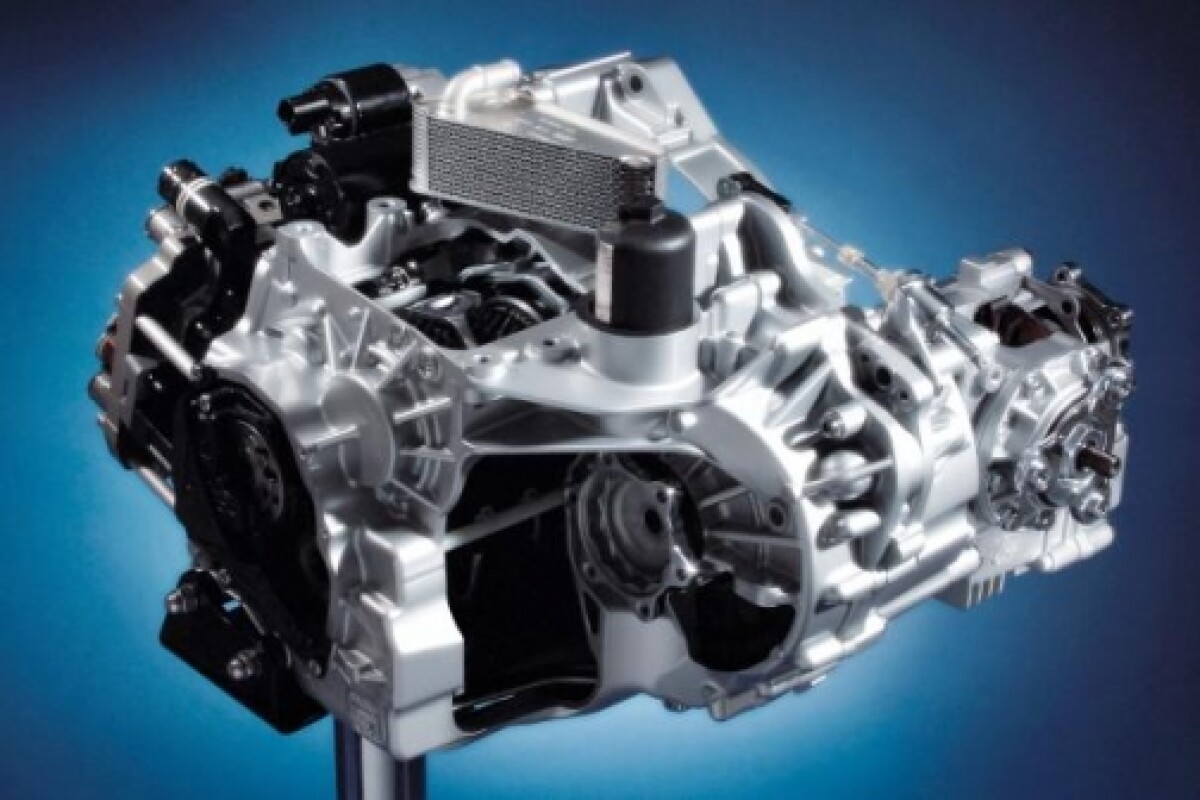May 25, 2007 Volkswagen has developed a seven-speed version of its DSG gearbox which is used on such exotica as the Bugatti Veyron and the Audi TT. The new seven-speed gearbox, codenamed DQ200, uses a pair of dry clutches in preference to the six-speed version’s twin wet clutches, increasing efficiency and performance over the wet clutch six-speed system. The six-speed DSG gearbox, which was introduced in 2003, uses a pair of clutches submerged in oil. The new seven-speed gearbox adopts a pair of dry, organic bonded friction linings that do not require cooling, making the drivetrain more efficient through the extra ratio and the fact that less power is required for the gear selection and clutch servo system.
For the first time the DSG gearbox has been mounted transversely. Measuring only 369 mm in length and weighing only 79 kg including the dual-mass flywheel the gearbox is remarkably compact. These modest proportions mean it can be applied to models from the Polo right up to the Passat and, in its current form, it is capable of coping with power outputs of up to 170 PS and 184 lbs ft of torque.
In adopting seven-speeds, Volkswagen engineers were able to lower first gear to improve acceleration from a standstill. By contrast seventh gear has been raised to act as an overdrive function making it ideal for motorway driving with the additional effect of raising economy and comfort levels.
The volume of oil contained within the gearbox has also been reduced by 75 per cent. The oil circuits are split into two in an effort to protect the lubrication’s purity. As with a conventional manual gearbox, one of the circuits is used for cooling and lubrication of the gear teeth, the second feeds oil to the gear actuators. Since the clutch does not require cooling the quantity of oil was reduced from seven litres in the six-speed DSG gearbox to only 1.7-litres in the new seven-speed system.
Production of the gearbox is set to start at the end of the year with its first application in the UK being planned for the Golf and mated to the 1.4-litre TSI petrol and 1.9-litre TDI diesel engines.





